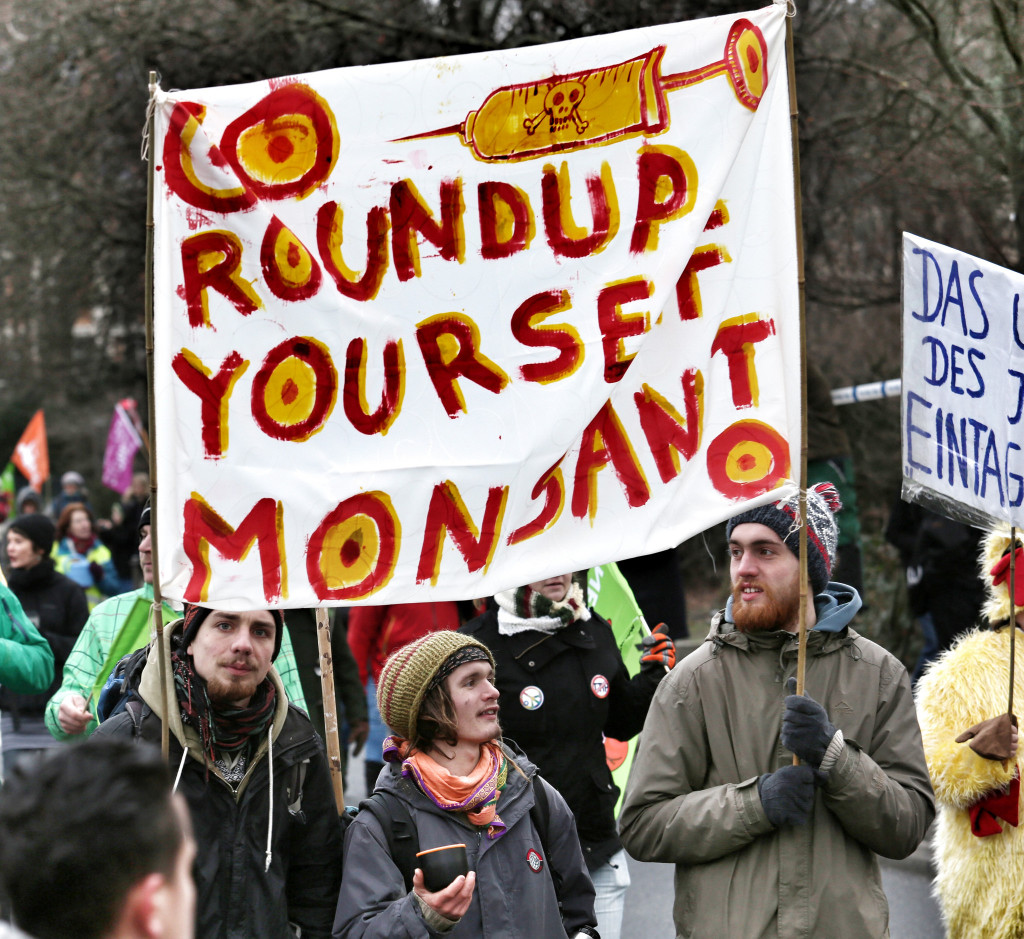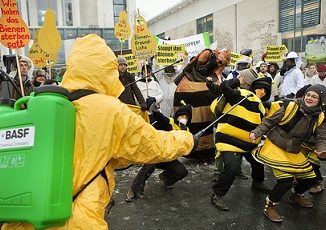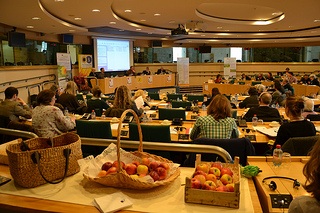By Julius Lorenzen
The European Commission has postponed a vote on a 15-year reauthorisation of the substance Glyphosate, following important concerns from EU Member States and environmental organisations. This article looks at what’s next in the Glyphosate debate, before reviewing the most contentious issues surrounding this topic.

Background
A study from March 2015 conducted by the World Health Organisation’s Agency for Research on Cancer (the IARC) found the substance known as Glyphosate, prevalent in popular herbicides, to be “probably carcinogenic to humans”. The IARC based its conclusions on evidence from published, publicly available studies of human exposure, as well as animal experiments.
Then, in a risk assessment published in November 2015, the European Food Safety Authority (EFSA) contradicted the IARC’s findings, considering the herbicide to be “unlikely to pose a carcinogenic hazard to humans”. The discrepancy between these two very different conclusions has reinvigorated a strong societal and political debate on the actual safety of herbicides.
In the course of the past week(s), the European Commission had introduced a proposal to extend the authorisation of Glyphosate for a further 15 years until 2023. Due to lacking consensus on the issue on behalf of Member States, the Standing Committee’s vote was postponed, to allow the Commission sufficient time to find support for its proposal.
Current state of affairs and outlook
The delay of the vote has been the result of strong efforts from environmentalists and organised civil society groups against it. 1,4 million people across Europe have signed Avaaz petition, against the new authorisation for Glyphosate. It has also given way to an important increase in short-term lobbying efforts, with both environmental groups and biotech industries trying to either seize opportunity or conduct damage control.
Civil society organisations such as Greenpeace and the Health & Environment Alliance (HEAL) are suddenly gaining a lot of traction. Indeed the Guardian reported Friday that the director of the European Crop Protection Association – which is made up of companies such as Bayer, Dow, Monsanto, BASF – revealed that “countries were influenced by significant political pressure from the environment committee of the European parliament, NGOs and the precautionary principle.”
Environmental NGO campaigns have earned the support of key Member States such as France, Italy, Sweden, and the Netherlands, which have committed themselves to vote against a renewal of the licence. Others such as Denmark and Belgium will most likely vote in favour of extending the authorisation’s lifespan, while Germany is likely to abstain, according to sources close to the process. A race to gain the support of undecided Member States for either side of the issue has begun.
The uncertain outcome of a possible vote may very well be the result the high amount of uncertainty in the scientific facts surrounding the debate.
The current Commission proposal is not expected to be endorsed by a sufficient amount of Member States to obtain a Qualified Majority supporting either of the options. The Commission will therefore likely submit a revised proposal, before putting it up for a vote. In this case it could be voted on during the Standing Committee on Phytopharmaceuticals coming 18-19 May. However, as the authorisation for Glyphosate runs out as soon as the end of June, it is also plausible that the Commission will be inclined to resolve matters earlier. It could then introduce a proposal for voting during the Standing Committee on Plants, Animals, Food and Feed scheduled for the 19-20 April.
EU anonymous sources consider that the Commission will offer a new compromise proposal that would reduce the authorisation to a period of 10 years, to ban co-formulants and to undertake more bio-monitoring. This position would surely be acceptable for the biotech industry, but less so for environmentalists. Co-formulants are already banned in many Member States such as Germany and replacements for these substances are generally easily available.
Lacking scientific consensus
The most contentious issue up for debate appears to be the primacy of scientific results: which organisation is more accurate, rigorous and independent? This makes it all the more confusing for the general public. Science is not finite. Depending on the type of methodology scientists use, the range of and quality of publications considered, the weight given to various factors, or the conditions of experimentation, the results to a same scientific question can be very different. The only notion that can provide EU citizens and public officials with a reasonable amount of confidence in science is consensus. When out of 12,000 peer-reviewed articles, 97% find that climate change is real, and caused by humans, then that is a clear statement of scientific consensus. In the case of Glyphosate the science is anything but settled. Considering one institution calling it “unlikely to cause cancer”, and another, not less prominent institution referring to it as “probably carcinogens”, hardly points to a case of scientific consensus.
Precautionary principle
Although there is an evident lack of scientific consensus, the Standing Committee will still be required to eventually take a decision come April or May: in a situation of concern about public safety, decision-makers are best advised to opt for the solution that ensures the wellbeing of their citizens. This notion of precautionary principle is well reflected in the following excerpt from a communiqué of MEP Michele Rivasi from the European Free Alliance/the Greens: “We do not have the evidence necessary to effectively evaluate the scientific arguments put forward by the two camps concerning the classification but we consider that we are facing major problems that need to be addressed urgently”.
However, the Commission appears to be committed to the exact opposite of the precautionary principle. It is still expected to present a revised proposal to prolong the authorisation for Glyphosate. The envisioned length of the extension of 15 or potentially 10 years is striking. Allowing this controversial substance to stay in such widespread use for another decade would certainly be a sign that the Commission, based on the EFSA risk assessment, has taken a particular position about the safety of the substance. It expresses certainty and confidence at a moment where science seems to do the opposite. And this does little to generate trust in the EU’s political and institutional processes, when trust is really needed.
More
All ARC2020 articles on pesticides
Glyphosate: EU approval process seriously questioned Julia Sievers -of Agrarkoordination; March 2015)
From Corporate Europe Observatory – CEO
Corporate Europe Observatory (CEO) on EFSA and glyphosate (November 2015)
Glyphosate relicensing – the story so far (CEO March 2015)
Key evidence withheld as ‘trade secret’ in EU’s controversial risk assessment of glyphosate (CEO February 2016)
More
Pesticide Action Network Germany Glyphosate Report August 2015
Potential toxic effects of glyphosate and its commercial formulations below regulatory limits (Published in Journal of Food and Chemical Toxicology October 2015)






1 Trackback / Pingback
Comments are closed.